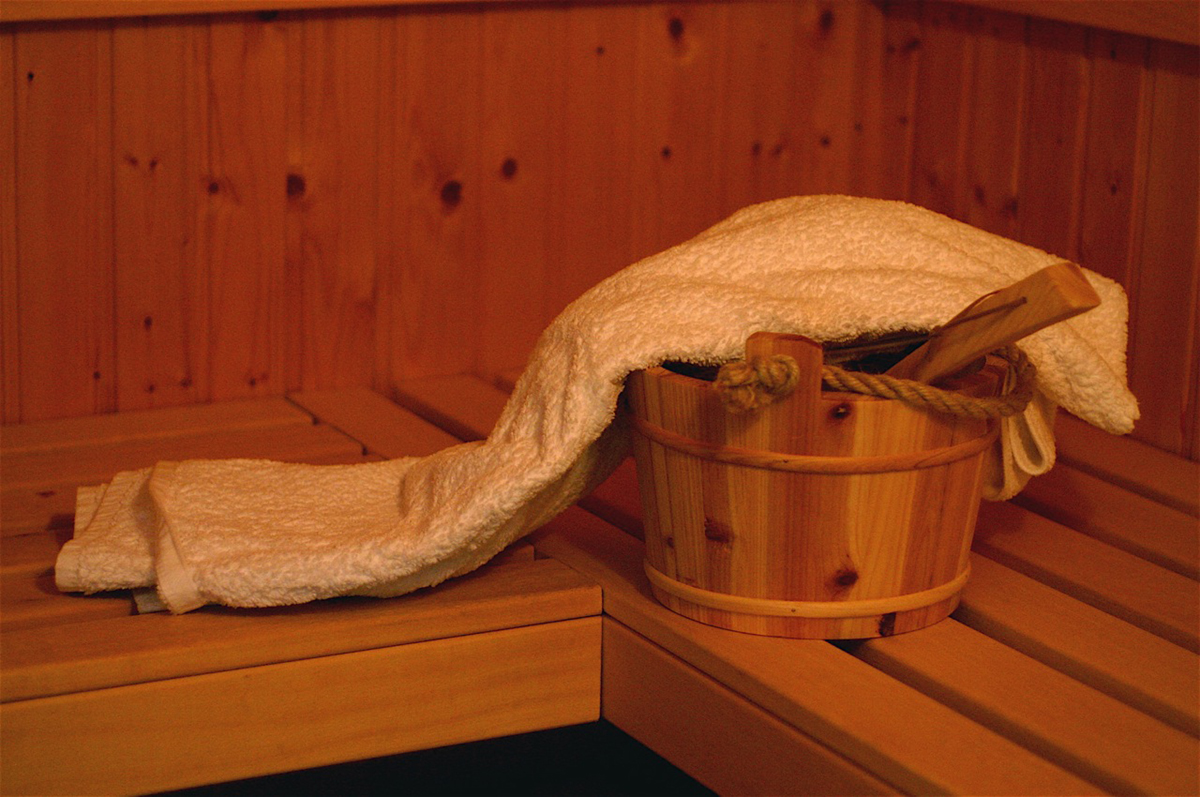Table of Contents
Some critics point out that Finns who visit sauna more often are more likely to have their own sauna room. They have higher income, and by sharing their sauna room, higher social status. These factors are associated with better general health. Also, since taking a sauna raises the heart rate to about 150 beats a minute, people who have pre-existing vascular issues will be less likely to take saunas. However, there are many other good reasons for taking saunas other than just maybe preventing Alzheimer's disease 30 years from now.

Here are just a few:
- Taking a sauna (or a warm-water bath) before working out prevents muscle soreness. The application of moist heat prior to an exercise session reduces muscle strain, muscle pain, and the kind of soreness that only shows up a day or two later.
- Your sweat glands produce proteins that protect the whole body from infection, such as apolipoprotein D, clusterin, prolactin-inducible protein and serum albumin. You don't "sweat out" an infection, but your sweat may keep it from every coming in.
- Infrared sauna at lower heat (just 35 to 50 degrees Celsius, or approximately 85 to 120 degrees Fahrenheit) after working out also helps prevent muscle soreness. Infrared sauna sessions require low humidity so the infrared radiation can penetrate farther into muscle.
- Taking a sauna after a hard workout stimulates white blood cell production and will help prevent infections. The better your physical condition, the more a sauna will stimulate white blood cell production (within healthy limits).
- Repeated sauna sessions increase breathing capacity in people who have allergies.
- Waon therapy using an infrared sauna is a useful treatment for chronic fatigue syndrome. The infrared sauna is used for shorter sessions at lower temperatures and low humidity. Waon therapy sessions tend to relieve anxiety, depression, and fatigue, but they don't give the user "get up and go." They just reduce the most negative symptoms of the disease.
- Overweight men and women tend to lose weight when they use a steam sauna, but this is not a good thing when the weight lost is due to dehydration. Heavier people are more susceptible to dehydration at high temperatures. Even if it counteracts your weight loss, drink water before and after and even during sauna to avoid dehydration.
- Taking a sauna before work, if you can schedule it, tends to increase your efficiency during your working day.
- Whole-body cryostimulation, which may be something as simple as taking the traditional plunge into an icy lake after sitting in the steam room, increases the body's production of superoxide dismutase, the primary antioxidant that keeps DNA and enzymes intact in the presence of free radicals.
Sauna bathing is well tolerated by people of all ages, from infancy to advanced old age. Even pregnant women usually enjoy a sauna. Some doctors advise their patients who already have cardiovascular disease to avoid the sauna, but most serious incidents involve a combination of drinking and taking a sauna. Waon therapy, taking a lower-temperature sauna more often, may even improve circulatory function in people who have had heart attacks. Even people who have congestive heart failure often benefit from sauna sessions. As a general rule, if you can walk into the sauna room, you can walk out of it.
- Kukkonen-Harjula K, Kauppinen K. Health effects and risks of sauna bathing. Int J Circumpolar Health. 2006. 65:195–205. doi: 10.3402/ijch.v65i3.18102.
- Laukkanen T, Kunutsor S, Kauhanen J, Laukkanen JA. Sauna bathing is inversely associated with dementia and Alzheimer's disease in middle-aged Finnish men. Age Ageing. 2016 Dec 7. [Epub ahead of print] PMID: 27932366.
- Photo courtesy of wanhoff: www.flickr.com/photos/wanhoff/455500368/
- Photo courtesy of wanhoff: www.flickr.com/photos/wanhoff/455500368/
- Photo courtesy of wanhoff: www.flickr.com/photos/wanhoff/455500490/


Your thoughts on this